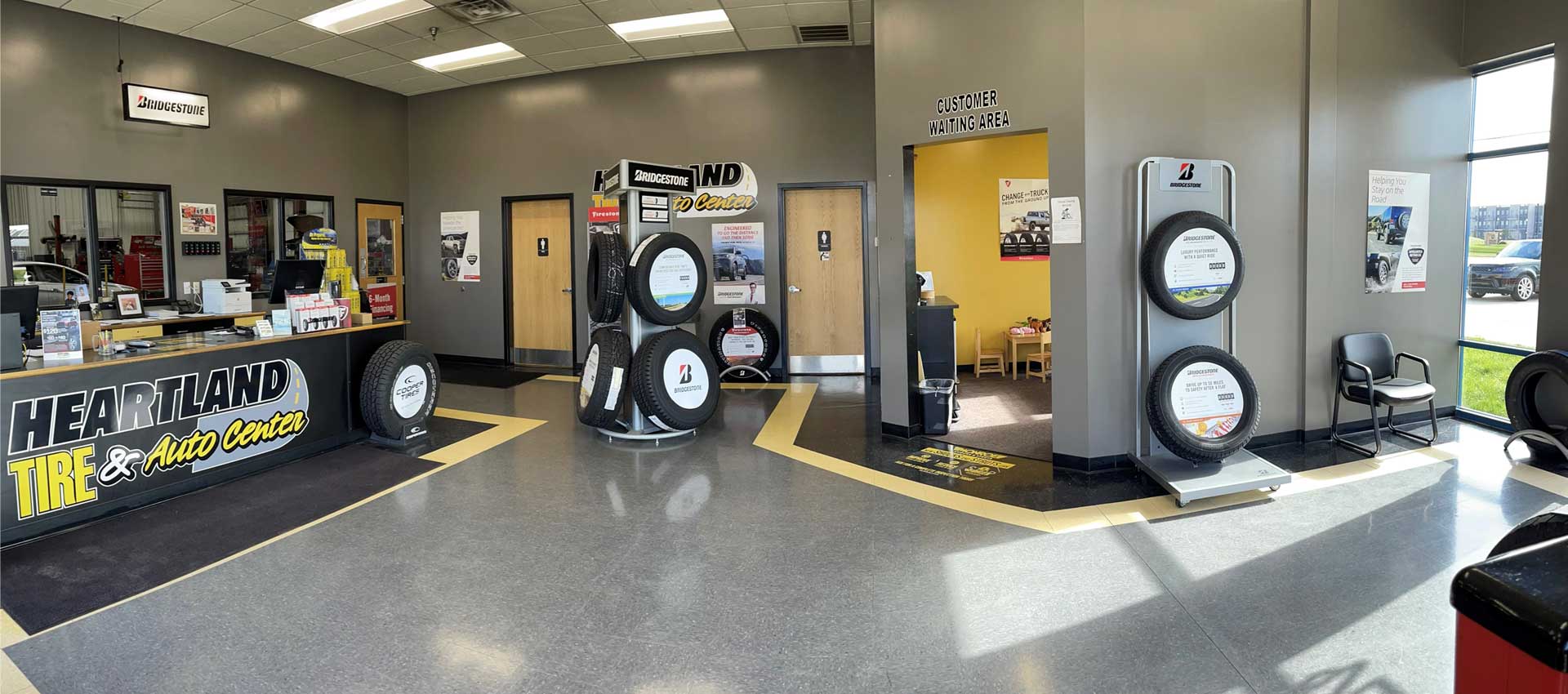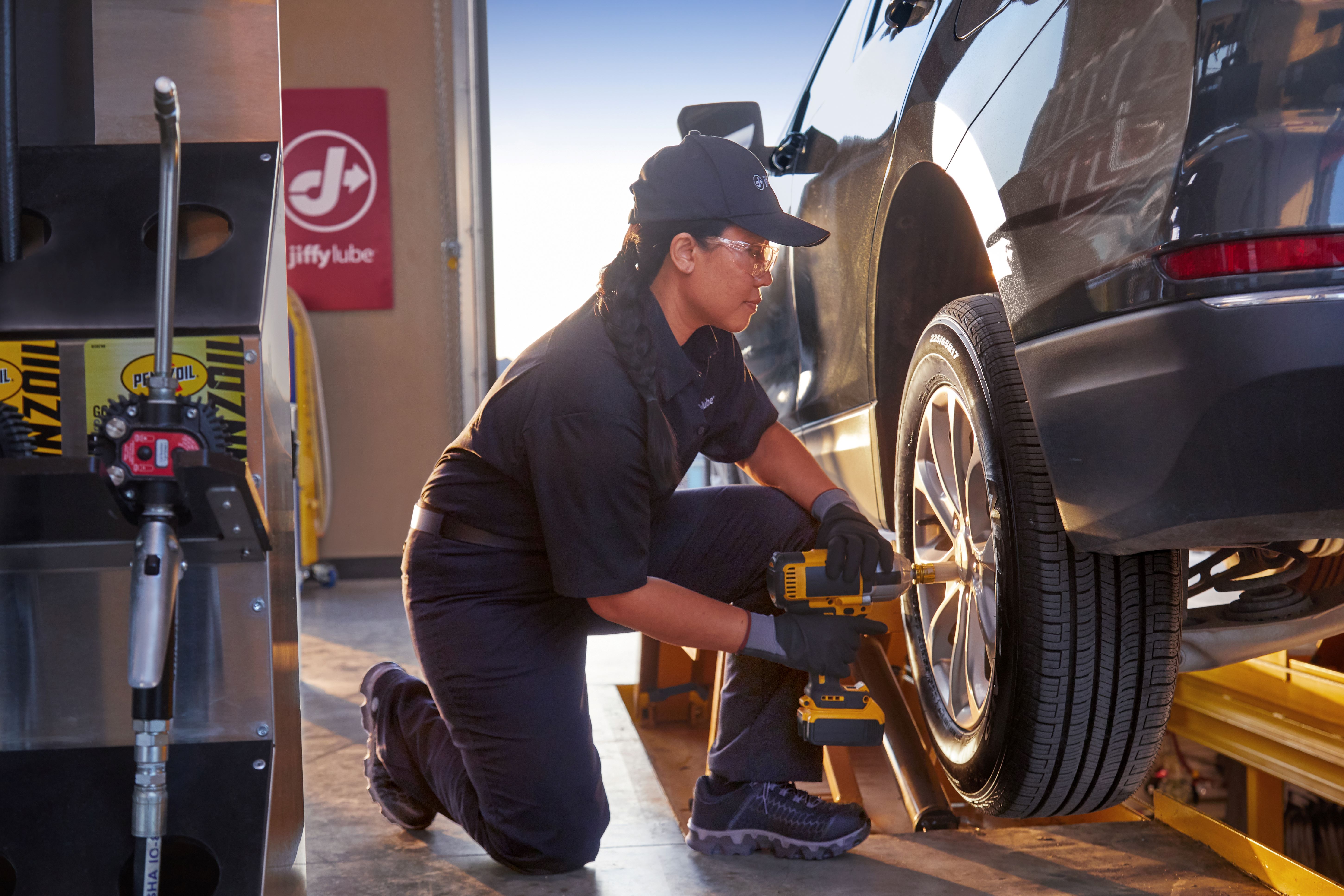Wide Option of Tires Morris IL: Find the Perfect Fit for Your Automobile
Wide Option of Tires Morris IL: Find the Perfect Fit for Your Automobile
Blog Article
Tire Solution: The Effect of Weather Condition Problems
When it comes to ensuring optimal performance and security when traveling, understanding the impact of weather on tire solution is crucial. From scorching warmth to icy roadways, each weather aspect can dramatically affect tire performance and general driving experience. By delving right into the impacts of varying climate condition on tires, chauffeurs can acquire important insights that might enhance their vehicle's efficiency and durability. In this discussion, we will certainly check out the elaborate relationship in between climate conditions and tire solution, shedding light on the importance of weather-specific tire maintenance practices and factors to consider.
Heat and Tire Efficiency
When subjected to high temperatures, tires experience changes in performance that can dramatically impact automobile safety and security and handling. The warmth created from long term driving or hot weather condition problems triggers the tire rubber to soften, leading to decreased walk life and boosted wear.
Additionally, high temperatures can increase the procedure of tire aging, causing the rubber to deteriorate much more swiftly. This can result in fractures, protrudes, and various other kinds of damages that jeopardize the structural honesty of the tire. To minimize the results of warmth on tire efficiency, vehicle drivers need to on a regular basis examine their tire stress, turn tires to make certain even put on, and check for any type of signs of damages. In addition, using tires especially created to hold up against high temperatures can assist maintain optimum performance and safety on the roadway.
Cold Weather Condition Effects
Winter problems can have a significant effect on tire performance and security. As temperature levels decrease, tire rubber can harden, causing decreased traction on icy or snow-covered roadways. In cold weather, tires might also shed air stress much more quickly, which can influence dealing with and gas effectiveness. Furthermore, chilly temperature levels can cause tire sidewalls to stiffen, boosting the threat of damage from potholes or other roadway threats.
To reduce the impacts of winter on tires, it is vital to routinely inspect tire stress and inflate them to the supplier's suggested levels. Utilizing wintertime or all-season tires created for cool weather conditions can also improve traction and grasp on icy or snowy roads - morris tire and alignment. Correct tire upkeep, consisting of routine inspections for wear and damages, becomes much more crucial throughout colder months to ensure optimal efficiency and safety and security
Rainy Conditions Effect
Tires with worn-out treads are a lot more vulnerable to hydroplaning, where a layer of water builds up between the road and the tire surface area, leading to loss of traction. To combat this, chauffeurs ought to consistently examine their tires for ample step deepness and take into consideration spending in tires specifically developed for wet conditions.

Snow and Tire Safety And Security
When driving in snowy problems, having the best tires can make a significant distinction in safety and security and efficiency. Winter season tires are made with unique rubber substances and walk patterns to supply better grip on snow and ice compared to all-season tires.
In enhancement to using winter tires, it is essential to guarantee they are correctly blown up. Winter can create tire stress to drop, influencing traction and handling (morris tire and alignment). Frequently examining and maintaining the proper tire stress is important for optimum performance discover this in snowy conditions

Weather-Related Tire Maintenance
Weather-related tire upkeep incorporates a range of practices aimed at ensuring optimal tire function and longevity in different weather Full Article situations. One vital aspect of weather-related tire maintenance is tire pressure policy. Checking tire walk regularly and replacing tires when tread wear reaches a specific deepness is vital for keeping grip and stability in unfavorable weather.
Conclusion
Finally, weather conditions have a significant effect on tire efficiency and security. From warmth influencing tire stress and use to winter lowering grip, it is vital to consider the climate when keeping and making use of tires. Rainy problems can reduce grip and cause hydroplaning, while snow can boost the danger of accidents if tires are not effectively outfitted. Weather-related tire maintenance is important in making sure ideal performance and safety on the roadways.
In this conversation, we will certainly discover the elaborate relationship between weather conditions and tire solution, shedding light on the relevance of weather-specific tire maintenance techniques and considerations.

Report this page